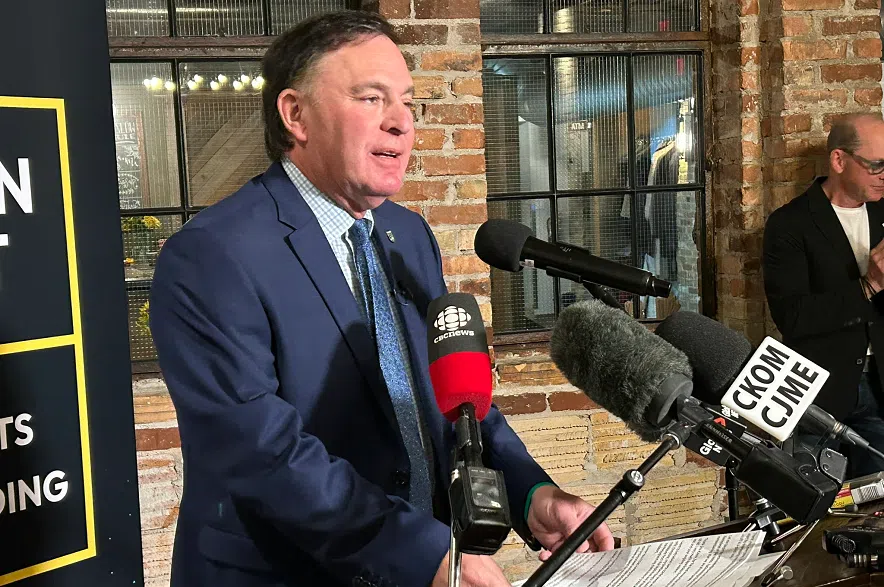Sask. Party MLA Gordon Wyant launched his campaign to become Saskatoon’s next mayor on Monday.
The former cabinet minister and MLA for Saskatoon Northwest shared his vision of public safety, affordability and transparency.
“These pillars are embodied in our slogan, ‘safe streets and smart spending’ and these aren’t just catchy phrases – they’re the foundation of my vision for Saskatoon and I know that you all share them.
Wyant was asked about his stance on the gender pronoun policy in schools the Sask. Party implemented last fall. The new policy requires parental approval for sex education classes, and when a young student wishes to change the name or pronouns they use in school.
“Let me say this. I didn’t vote on the legislation the government brought forward in the emergency session” he said. “I didn’t vote for it and I think that indicates the fact that I wasn’t supportive of the way it was and the way it was brought forward.”
Now that Wyant is no longer serving the Sask. Party, he said that he will be reaching out to the proper people to see if he can march in Saskatoon’s pride parade.
“If it’s their position that they don’t want me to participate in the parade, I’ll be very respectful of that,” he said, adding “I am very proud of my attendance record and proud of my support for human rights when it comes to transgender individuals.”
Wyant is the third candidate in the race to replace two-term mayor Charlie Clark, who announced in January that he won’t run again. He suggested his experience as a cabinet minister, along with his time practising law in Saskatoon will make him a good mayoral choice for the city.
“We must provide essential services without burdening our taxpayers. It’s time for a budget that prioritizes what truly matters without resorting to massive tax hikes,” he said. “Safe streets require smart spending and we can achieve both of these through careful planning and responsible management.”
Wyant said public safety is essential for community success.
“Everyone in Saskatoon deserves to feel secure. Safe streets are not just for the average citizen, but especially for those who feel vulnerable. Safe streets mean a better quality of life for everyone,” he explained.











